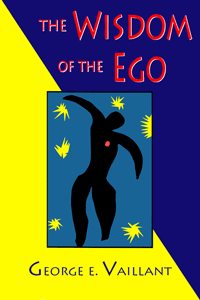
Wisdom of the Ego
Publisher: Harvard University Press
Please provide your name and email to get free downloads.
Downloaded 3645 times since
Something horrible happens, and our minds play tricks on us, tell us that it never happened, occurred differently than it did, isn’t quite what it seems. Such trickery, George Vaillant tells us, is actually healthy. What’s more, it can reveal the mind at its most creative and mature, soothing and protecting us in the face of unbearable reality, managing the unmanageable, ordering disorder. In The Wisdom of the Ego, Vaillant, one of America’s preeminent psychiatrists, gives us an exhilarating look at how the mind’s defenses work, and at how they evolve and change, and so, change us.
Freud tells us that the first five years of life constitute destiny. If this were so, Vaillant asks, then how could so many deeply troubled youths become well-adjusted, productive adults? Drawing on the Study of Adult Development, based at Harvard University, this book takes us into the lives of such individuals—thriving men and women who suffered grievous disadvantages and abuses during childhood—to show us that the mind’s remarkable defense develop well into adulthood, that the maladjustments of adolescence can evolve into the virtues of maturity. In one fascinating case after another, he introduces us to middle-aged men and women learning how to love, to make meaning, to reorder chaos.
Because creativity is so intrinsic to this alchemy of the ego, Vaillant mingles these life studies with psychobiographies of famous artists and others. We meet Florence Nightingale, the intractable hypochondriac and hopeless dreamer who, at the age of thirty-one, wrote in her diary, “I see nothing desirable but death,” and we watch as she transforms her anguish into altruism, her hapless fantasies into fantastic success. In the tormented life of Sylvia Plath, we see psychosis as not only a defect but also an effort at repair, her poetry as an extraordinary illustration of the adaptive process. We witness the mature working of the mind’s defenses in the career of Anna Freud, their greatest elucidator. And we see the wisdom of the ego at work as Eugene O’Neill evolves from self-destructive youth to creator of great art.
In these compelling portraits of obscure and famous lives, Vaillant charts the evolution of the ego’s defenses, from the psychopathic to the sublime, and from the mundane to the most ingenious. An account of the boundless psychological resilience of adult development, The Wisdom of the Ego is a brilliant summation of the mind’s amazing power to fashion creative victories out of life’s would-be defeats (1041 pgs).
Reviews
“This is a remarkable synthesis of the best current thinking on ego psychology as well as many-faceted picture of what Robert White would call “lives in progress.” It makes on its own not only a highly innovative contribution to ego psychology but an equally original and impressive contribution to longitudinal research. A remarkable and many-faceted work.” —George W. Goethals, Harvard University
“A richly textured, elegantly written, and humane book by the person who is becoming the Anna Freud of his day. Vaillant’s sympathetic treatment of the defenses is itself wise and creative.” —Robert Kegan, Harvard University and Massachusetts School of Professional Psychology
“This is a brilliant, not to say unique, book. It brings to the study of the ego the same clarifying empiricism, animating passion, and illuminating insight that so strikingly characterized the pioneering investigations of the dynamic unconscious a hundred years ago. Behind The Wisdom of the Ego lies the wonderful wisdom of George Vaillant.” —John C. Nemiah, Dartmouth Medical School
Every dollar you donate keeps this site humming. No contribution is too small. Please consider chipping in.

